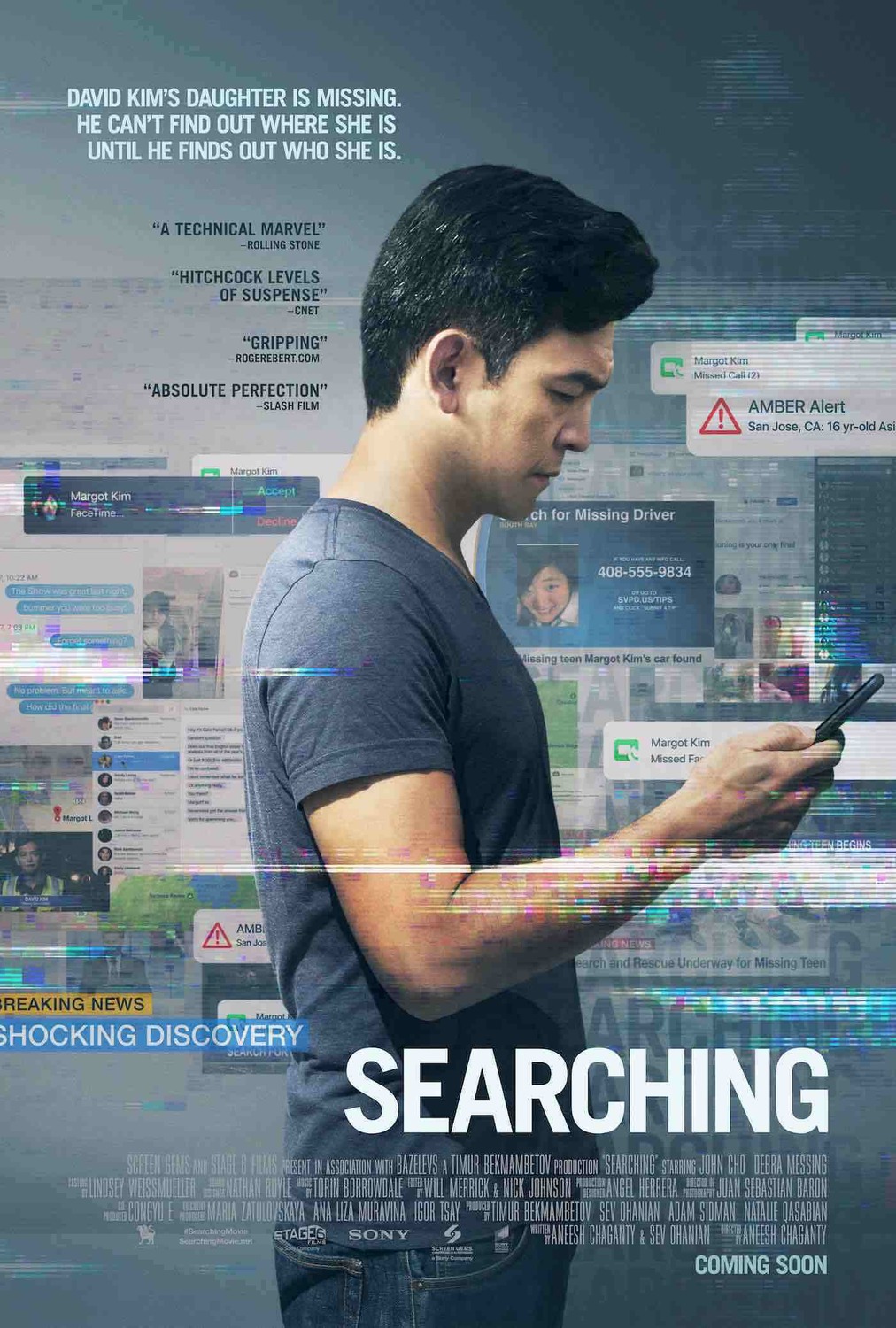It would be easy to go into Searching with expectations of a gimmicky version of a fairly standard whodunnit, but it quickly becomes clear that newbie director Aneesh Chaganty knows what he’s doing. Presented solely via tech screens (à la 2014’s horror flick Unfriended), Searching gives the audience a palpable sense of pseudo-voyeurism as events unfold via smartphones and laptops. Through the use of social media sites, text messaging, surveillance cameras and a dozen other platforms, we get sucked into the characters’ private lives, and we stay locked in until the curtain falls.
At the heart of Searching is a crime that may not be a crime at all. Sixteen-year-old Margot Kim Facetimes her dad David (John Cho) one night as she’s prepping for a study session at her friend’s house, but then she fails to make it home and doesn’t show up at school the next day. As minutes turn into hours, David hacks in to his daughter’s social media accounts and discovers he didn’t really know her at all. Her friends say she is actually a loner and that they only hang out with her because she’s smart and can help them with their classes. David also discovers Margot’s been stashing the money he’d been giving her for piano lessons over the past six months.
He reports all this to the lead investigator, Detective Rosemary Vick (Debra Messing), who finds a few breadcrumbs herself, including Margot’s recent cell phone activity and few seconds of surveillance footage from the night she disappeared. Together they begin to put the pieces in place, still not sure sure whether Margot ran away or was abducted.
At its premiere at Sundance in January, Searching won two awards—the NEXT Audience Award and the Alfred Sloan Prize for best technology-based film—and it’s easy to understand why. What took only two weeks two shoot ending up taking more than 18 months to edit, as Chaganty and two editors had to cobble together multiple layers of computer-generated screens; the VFX team created every Facebook page, Facetime call, and YouTube video from scratch. While there are a few times, particularly toward the end, when the film feels hamstrung by having to maintain its everything-on-a-screen format, the overall effect remains mesmerizing.
Had Searching been made conventionally, it probably would have ended up feeling like a so-so Law & Order rerun, but by throwing us head-first into the dark web world of Margot Kim, we get an intimate, slow-burn film that culminates with a singular, honest-to-goodness holy-crap moment. We’re finding out what happened to Margot at the same time her father and the police are, and that immediacy helps Searching power across the finish line.
Look no further—one of the better thrillers of the year has arrived.
Rating
4.5/5 stars
